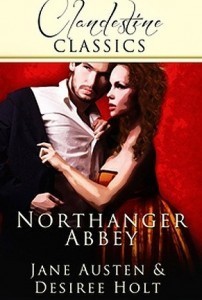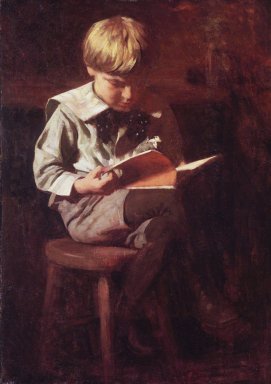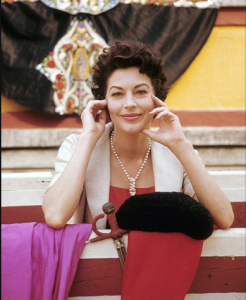The Paris Review's Blog, page 899
July 23, 2012
Where Daisy Buchanan Lived
Conway Farms Golf Club, Lake Forest, IL.
In a 1940 letter to his daughter written six months before his death, F. Scott Fitzgerald said, “Once I thought that Lake Forest was the most glamorous place in the world. Maybe it was.” Sixty-six years later, as I drove through the Illinois suburb that sits thirty-two miles north of the heart of Chicago’s Loop, I kept looking around and wondering to myself what exactly it was that Fitzgerald found so great. I thought about him as I drank a coffee at a Starbucks that wasn’t there the last time I’d visited, and I noticed that the McDonald’s drive-through near the Metra train station seemed to be buzzing. All the suburban trappings I recalled from a childhood spent on the North Shore of Chicago were still there. To me, Lake Forest was a place I’d gotten to know by peeking through frosted car windows on my way to early morning hockey practice as a kid. Cozy, definitely, but not exactly the sort of place I associate with the Roaring Twenties decadence and wild parties conjured by Fitzgerald’s name.
Founded in 1861, Lake Forest, Illinois, was originally built as a college town by Presbyterians. After the Civil War, the city attracted residents whose last names were synonymous with the building (and a decade later, the post–Great Fire rebuilding) of Chicago. Thanks to its tranquility and natural beauty, as well as its isolation from main roads, Lake Forest became the Chicago metropolitan area’s most desirable neighborhood, attracting Rockefellers, Armours, Medills, and Marshall Fields. Lake Forest was the Greenwich of the Midwest: a haven for robber barons and meat packers far from the strikes, riots, and muckrakers that threatened the wealth and safety of the early twentieth century’s 1 percent. By the city’s 150th anniversary, in 2011, Lake Forest had served as the setting for a best-selling novel (A Heartbreaking Work of Staggering Genius, by native son Dave Eggers) and Oscar-winning film (Robert Redford’s Ordinary People). But the city’s first true claim to literary fame came in 1925, as a passing mention in the first chapter of The Great Gatsby, in which we learn from narrator Nick Carraway that Tom Buchanan has bought a string of polo ponies from Lake Forest. Carraway is amazed that a man of his own generation is wealthy enough to have done so.
Create Your Own Genie; Listen to Beckett
The Cygnus Ensemble is presenting three original musical pieces to accompany Samuel Beckett plays.
“Omitting letters can confuse. How is the poor reader expected to differentiate between b******* and b*******?”
Jonathan Swift and the question of truth.
“E-books appear to be doing for religious books what they did for erotica.”
Happy (belated) birthday to scholar, teacher, and Norton Anthology founder M. H. Abrams.
Create your own genie to win a bookstore gift certificate.
July 20, 2012
Dear Paris Review, Where Do I Publish?
Dear Editors:
Have made writing full time. Have novel and short essays. Attended NYU’s Summer Writer program last year. Would you have a good list of places for submissions beyond The Paris Review, The New Yorker and The New York Times? Thank you for reaching out via Twitter and offering some of us (hopefully lovable) newbies some guidance.
Dear Newbie,
We get asked this a lot. It’s a reasonable question, but it always makes our hearts sink.
Here’s the thing: no matter how many classes you take, no matter how much time you spend at the keyboard, you cannot write seriously unless you read. And that means, partly, reading your contemporaries. Their problems are your problems; you can’t write—that is, you can’t write for serious readers—until you know what the problems are. I could give you the names of some good journals, but—supposing they take your work—what’s the point of publishing in a magazine that you don’t already read?
I know it’s hard to discover good little magazines online (though our readers may be able to suggest favorites of their own). The best thing is to go to a good bookstore—or a big enough Barnes & Noble—and take stuff off the shelves. If you don’t have access to a bookstore, find a good library. If you don’t have access to a library, read the acknowledgments in the story collections that mean most to you. Then take out a couple of subscriptions.
Whatever its defenders say, the M.F.A. system has created a surplus of would-be writers and a deficit of habitual readers—and I’m afraid it shows in the work submitted to us here at the Review. This trend is easy to reverse, at least in your own life. Join the writing community for real: become a reader.
Dear Editors:
I’m looking for American novels with age-discrepant/age-heterogeneous relationships—themes like Nabokov’s Lolita. I unsuccessfully tried What Should I Read Next?, but it appears that the site’s algorithm is based on the author and not the theme.
My short list includes:
Candy/Southern
Breakfast at Tiffany’s/Capote
Tropic of Cancer and Capricorn/Miller
Twilight/Meyer
Katie/Me
Pretty Little Liars/ Shepard
Teach Me/R.A. Nelson
Gossip Girl/von Ziegesar
On the Road/Kerouac
Shopgirl/Martin
Thanks in advance!
MI
Dear MI,
If you want a dose of harsh reality about “age-discrepant” relationships, read Margaux Fragoso’s memoir Tiger, Tiger. The writing is painfully vivid and emotionally subtle. I confess I couldn’t finish the book. But it captures the confusions of a neglected girl who, starting at the age of seven, finds herself loved and desired by a middle-aged neighbor. Another writer who has written beautifully about age-discrepant attraction—from the child’s point of view—is Harold Brodkey, for instance in The World is the Home of Love and Death. Toni Morrison’s The Bluest Eye and Mary Gaitskill’s Two Girls, Fat and Thin also come to mind. And you may be interested in Tamara Faith Berger’s new novel Maidenhead—an erotic fantasy about a Canadian girl who falls under the spell of a couple whom she meets during a family vacation in Key West.
There is no shortage of stories about grownups (usually men) in love with young people, told from the grownup’s point of view. It is one of the staples of Western literature, from Boaz and David in the Bible, to Plato’s dialogues, to Maupassant’s Fort Comme la Mort, to Stefan Zweig’s Confusion, to Colette’s Cheri, to Death in Venice, to Henry Green’s Loving and Doting. In contemporary American fiction we have—apart from the books you mention—John Cheever’s story “The Country Husband,” Yiyun Li’s recent story “A Man Like Him,” Todd Solondz’s movie Happiness, and Woody Allen’s Manhattan. Really the list is endless. For novels try Updike or Oates or, if you’re still in a Nabakovian mood, John Hawkes’s Travesty.
No doubt our readers can suggest more titles than these.
Have a question for the editors of The Paris Review? E-mail us.
What We’re Loving: High Fashion, Arabian Nights, and Field Mice
Image via Synchrodogs
The genre of the 1,002nd night is one few storytellers can resist. Poe wrote one, so did R. L. Stevenson, Jospeh Roth, and Naghuib Mahfouz. Some of these sequels are orientalist camp; the better ones concentrate on The Nights’ true drama: that of a woman talking to save her life. I’ve been reading an advanced copy of Tales of a Severed Head, a collection of poems by the Moroccan poet Rachida Madani. Her Scheherazade, a voice that Madina breaks into many different voices, angrily laments the history of modern Morocco and particularly the fate of its leftist intellectuals. It is as much a critique of the legend as a continuation of it. Madina’s poet is even willing, at times, to stop talking:
She is silent so she can breathe
in the empty cannons
lift and weigh the sacks of gunpowder
and take aim.
Marilyn Hacker’s translation from French is scrupulous and lively. —Robyn Creswell
Book Mazes, Ugly Covers, Hauntings
Brazilian artists Marcos Saboya and Gualter Pupo have made a maze out of books.
Beautiful books, ugly covers.
Sure, e-books are huge, but are they heirlooms?
Regardless, Penguin has acquired self-publishing platform Author Solutions.
And the British government is looking into the whole public-library-e-book-lending situation.
In other news, a haunted bookstore?
July 19, 2012
The Original House of Pies: SoCal Comfort
When the waitress set the slice of strawberry pie in front of me, I tried to contain my excitement. This moment was the culmination of two years’ worth of waiting, two years of longing and imagining my order and relishing memories of the last time I ate here at the Original House of Pies. I had first learned of the place from a song.
There are no lyrics in the Friends of Dean Martinez’s “House of Pies.” Instead of vocals, an electric guitar plucks the melody in sync with a heavy-bottom bass. It isn’t a catchy melody. There isn’t much to it. The tune mostly sets a mood. Under the guitar, brushes make slow circles across a snare drum, and a high lap steel whines its laconic counterpoint, casting a spell, like when heat and blinding sunlight make everything slow and heavy. Although it was recorded by a Tucson, Arizona, group, the song sounds the way summer in Los Angeles feels. The guy who wrote it, Joey Burns, was raised in L.A. and drew the song’s title from an East Hollywood restaurant.
I thanked the waitress, and she left me to savor my pie in private.
Read More »
Character Studies: Lady Brett Ashley
Ava Gardner as Ladt Brett
“Damned good-looking” is how Ernest Hemingway—or, rather, his antihero Jake Barnes in The Sun Also Rises—describes Lady Brett Ashley when she appears at a Parisian club with a mob of pretty boys. “Damned good-looking” is better than pretty. It’s better than the colloquial “hot,” better than beautiful, even.
Damned good-looking, it is.
Imagine Hemingway, the great economist of words, deciding just how he would introduce perhaps his most enduring siren. Original drafts of the novel open with the character Ashley (better known as Brett), though she would eventually come to play a smaller role. Hemingway was bewitched, at the time of writing, by the self-possession of the real-life Lady Duff Twysden, and she—rather than his wife, Hadley—would serve as the partial inspiration for The Sun Also Rises’s heroine. (Indeed, he would dedicate later editions of the novel to her.)
Erotic Classics, Christian Colleges, Dealbreakers
 Yup: e-books outsold hard copies in 2011.
Yup: e-books outsold hard copies in 2011. Out of the mouths of babes: a six-year-old judges classics by their covers.
Speaking of classics: a British publisher adds sex scenes to them. Erotic rewrites include Pride and Prejudice and Jane Eyre.
Written a great opener? Call the first graf hotline.
The C. S. Lewis Foundation plans to open a college based on his Christian teachings.
Dealbreaker books .
July 18, 2012
Watch: The Mosaic Man of the East Village
Chances are, anyone who has spent any time in Manhattan’s East Village is familiar with the work of Jim Power, aka “The Mosaic Man.” For the past three decades, Power has been on a single-handed quest to beautify an area which, when he started decorating lampposts with beautiful tile work, was far from salubrious. Despite twenty years of homelessness and the city’s destruction of some of his lampposts, Jim has remained undeterred and is a beloved fixture of the neighborhood. Etsy—with whom Power now has a shop—pays tribute with a video.
Jim Power and the Mosaic Trail from Etsy on Vimeo.
Watch: Interpublication Sexytimes
THE MAGAZINE MAGAZINES FANTASIZE ABOUT from The Paris Review on Vimeo.
Story by Noah Wunsch
Video by Carib Guerra & Noah Wunsch
Special thanks to Eamon Kelly
The Paris Review's Blog
- The Paris Review's profile
- 305 followers










